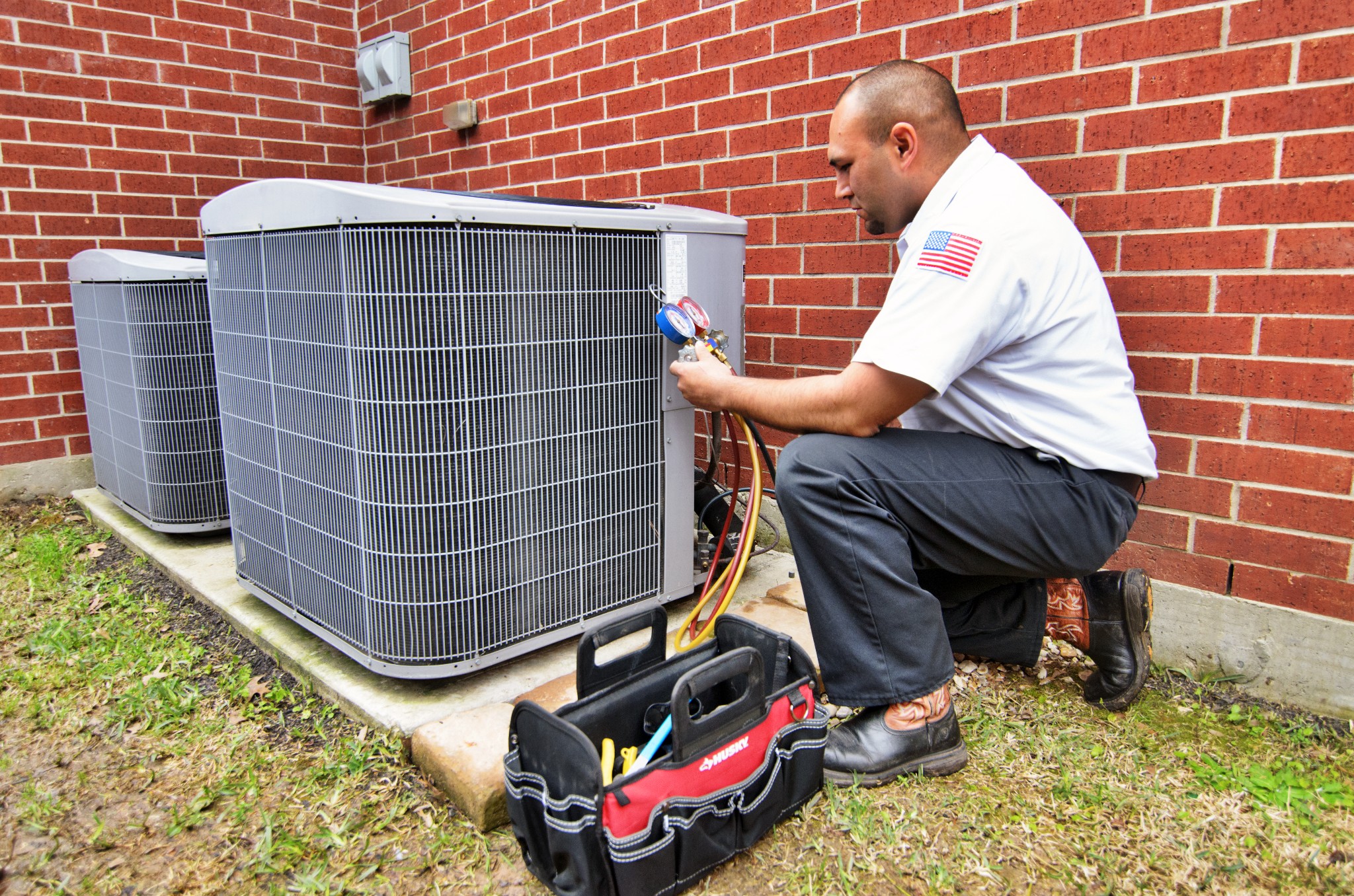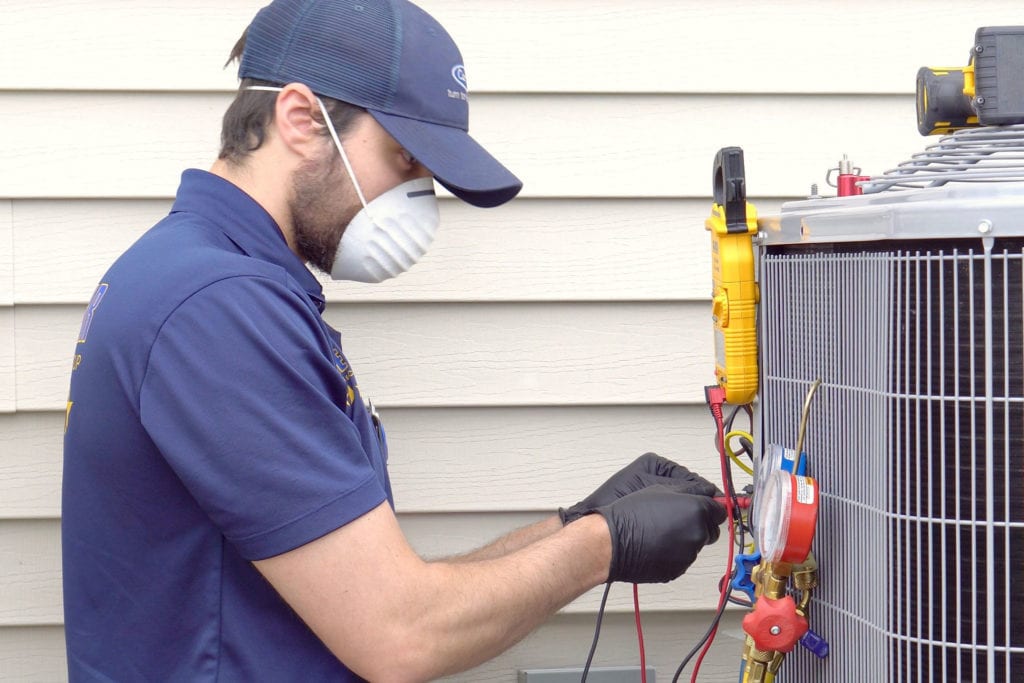Did you know that around 75% of house owners experience a/c noise concerns at some time? When your a/c begins making unusual noises, it can be quite disruptive to your peace and comfort.
From rattling and humming to screeching and banging, these sounds can suggest underlying troubles that require interest. Identifying the resource of the noise is vital for efficient repairs and guaranteeing your ac unit runs effectively. home ac repair
So, if you're tired of putting up with aggravating air conditioning sounds disrupting your harmony, there are services available.
Trick Takeaways
- Normal maintenance is necessary to attend to typical a/c sound sources like ductwork issues and damaged electric motors.
- Address vibrating sounds by inspecting for loosened parts, preserving fan electric motors, and including vibration isolation pads.
- Squealing and banging noises can be settled by inspecting belts, fan blades, and compressor coils for concerns.
- Repair air conditioner noise issues by carrying out aesthetic examinations, executing soundproofing methods, and troubleshooting for obstructions.
Common Cooling Sound Resources
If your a/c system is making unusual sounds, it could be because of among several typical resources.
One regular wrongdoer is issues with the ductwork. Over time, air ducts can establish leakages, loose connections, or even obstructions. These troubles can cause air to move erratically, causing whistling or rattling sounds. An extensive ductwork examination by a specialist can help recognize and fix these issues, recovering your system's smooth operation.
Another common source of noise in a/c systems is a damaged motor. The electric motor is a critical component that drives the fans and various other relocating parts within the system. If the motor is broken or damaged, it can create grinding, screeching, or clunking noises. In such instances, motor substitute may be necessary to eliminate the source of the disturbance. Normal upkeep and prompt motor replacement when required can assist maintain your air conditioning system running silently and effectively.
Diagnosing Rattling and Buzzing Seems
To resolve rattling and humming noises in your air conditioning system, begin by evaluating the components that might be creating these noises, such as loose parts or worn-out components. Vibration seclusion is type in fixing these problems. Look for any kind of loosened screws, bolts, or panels that might be shaking against each other during procedure. Tightening up these can typically alleviate the rattling sounds.
Additionally, inspect the fan electric motor for any kind of indicators of deterioration. Normal follower motor maintenance, such as lubrication and cleaning, can help reduce buzzing noises triggered by friction or malfunction.
If the rattling persists after inspecting and tightening parts, consider adding resonance isolation pads or installs to soak up the excess resonances. These pads function as a buffer between the shaking components, lowering the noise. Keep in mind that addressing these audios without delay can protect against more damage to your a/c system and ensure its peak performance.
Addressing Squealing and Banging Sounds
When resolving screeching and banging noises in your air conditioning system, start by recognizing the source of the sounds through a detailed evaluation of the unit's components. Examine the belt tension in addition to the motor bearings, as loose belts or damaged bearings can result in squealing noises. Evaluate the follower blade for any blockages or problems that could cause banging sounds when the follower turns. Additionally, analyze the compressor coil for any type of debris or concerns that might be creating the noises.
To resolve squealing sounds related to belt tension, change the tension complying with the supplier's guidelines to see to it it's within the suggested array. If the motor bearings are the offender, take into consideration lubricating them when possible; or else, they might need to be replaced. For banging sounds brought on by fan blade problems, repair or change the damaged blades immediately. When it concerns the compressor coil, cleansing it extensively can commonly fix any noise-related issues. By dealing with these potential sources of screeching and banging noises, you can restore your air conditioning system to its best functioning state.
Tips for Fixing Air Conditioning Sound
When confronted with a/c noise concerns, begin by carrying out an aesthetic evaluation of the unit's parts for any kind of noticeable indications of damages or wear. Look for loosened parts, damaged belts, or debris that may be triggering the sound. If you notice any type of issues, see to it to tighten up loose parts, change harmed components, and clean any type of debris to see if the sound boosts.
To deal with a/c sound issues, take into consideration soundproofing methods to decrease the sound transmission from the device. Shielding the wall surfaces around the unit, installing soundproofing panels, or placing rubber pads underneath the system can help wet the sound properly.
Routine maintenance is key to stop a/c sound. Be particular that the unit is clean, moisturized, and well-maintained to minimize prospective problems. Repairing actions like checking the follower blades and electric motor for any type of obstructions can likewise assist identify and take care of noise problems. For minor issues, do it yourself solutions such as tightening screws or readjusting components might deal with the sound without the need for professional assistance.
Guaranteeing Effective Air Conditioning Operation
Ensure your air conditioner runs effectively by organizing routine upkeep checks and maintaining the device tidy and well-lubricated. Guaranteeing your cooling system functions at its finest not only reduces noise however additionally lowers energy usage. To achieve this, apply sound decrease strategies such as positioning vibration pads under the unit to moisten audio transmission and ensuring all components are firmly tightened. Furthermore, tidy or replace air filters consistently to prevent air flow blockages that can strain the system and boost sound degrees.
Energy intake optimization is necessary for efficient air conditioner operation. Set your thermostat to an ideal temperature to stay clear of exhausting the unit. Make use of ceiling followers to aid circulate amazing air better, permitting you to raise the thermostat slightly without sacrificing convenience. Consider setting up a programmable thermostat to readjust temperature levels immediately when you're away. By following these techniques, you can preserve a comfy indoor setting while reducing energy costs and noise levels.
Regularly Asked Inquiries
Can Air Conditioning Sound Degrees Influence the Top Quality of Indoor Air?
High cooling sound degrees can impact indoor air high quality by adding to noise pollution, which can affect your wellness.
To resolve this, consider soundproofing remedies to lower the sound from your air conditioning system.
Exists a Correlation Between Cooling Sound and Energy Performance?
When it concerns air conditioning sound and energy effectiveness, there's without a doubt a connection.
The loud noises generated by your a/c system can suggest ineffectiveness that bring about increased power usage.
By dealing with and lowering the sound pollution, you can boost the general efficiency of your system.
Exactly How Can I Reduce Cooling Noise Without Compromising the Air Conditioning Performance?

To minimize cooling noise without endangering cooling efficiency, take into consideration soundproofing services like acoustic insulation.
You can maximize performance by adjusting the system for performance while moistening unwanted sounds.

Attempt ensuring all parts are correctly set up and preserved, and look for loose parts that can be triggering too much noise.
Are There Any Specific Rules or Guidelines Regarding Appropriate Sound Degrees for Cooling Units?
When it concerns cooling units, there are specific policies and guidelines in position to guarantee compliance with appropriate sound levels. These requirements assist endure a comfy atmosphere without causing disturbances.
Laws concerning sound degrees for air conditioning units differ depending on area, however typically focus on decreasing sound exhausts to a degree that does not interfere with day-to-day activities. It is essential to be aware of these standards to make certain your unit satisfies the needed requirements.

What Are Some Long-Term Upkeep Tips to stop Cooling Noise Issues in the Future?
To avoid air conditioning noise concerns lasting, see to it you stick to normal upkeep. Tidy or change filters, look for loose components, and keep the system tidy.
Consider soundproofing strategies like including insulation around the unit. By remaining on top of maintenance and taking steps to lower noise, you can delight in a quieter and a lot more efficient air conditioning system in the future.
Final thought

Since you have actually recognized the common sources of cooling noise and found out exactly how to diagnose and fix them, you can take pleasure in a quieter and much more reliable air conditioning system.
Bear in mind to regularly check for any unusual sounds and address them without delay to avoid any additional damage.
By taking care of your a/c unit, you can assure it runs smoothly and efficiently for many years ahead.
